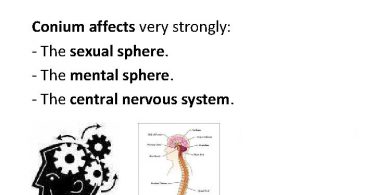[Abstract: This article deals with the understanding of the concept of ‘tubercular state or dyscrasia’ with the relation of various permutation & combination of the miasms psora, pseudo psora, syphilis and sycosis on the light of the teaching of Organon of Medicine & Homoeopathic Philosophy and the concept of ‘theory of chronic disease’, with their prognosis, are also expressed in this article.]
Introduction:
‘Tuberculosis’ and ‘tubercular’ are not the same; unless there is ‘tubercular state’ tuberculosis cannot develop and so we can say the condition of undeveloped tuberculosis is the ‘tubercular state’. Actually, when Sycosis or especially when Syphilis combines with Psora and that’s the condition the ‘Tubercular state or dyscrasia’ form. This ‘tubercular state’ cannot acquire in own life but inherit from parents. If Psora and Syphilis are perfectly combine in parent’s body then the combine state is called tubercular. If the developed symptoms of latent tubercular dyscrasia suppress by dissimilar method of treatment then the tuberculosis, or destructive disease, or phthisis stage develop.
‘Tubercular’ is ‘a state or dyscrasia’, not an independent polluted substance, as like Psora, Syphilis and Sycosis. Combinations of two or three miasms are seen in ‘Tubercular state’. As we know if there is no Psora, other two miasms can-not be present, and also in the absence of Sycosis and Syphilis, only Psora cannot develop the ‘Tubercular state’.
Psora attract Sycosis and Syphilis and with the combination of Psora other two miasms became more fresh and strong; whereas Psora cannot attract the ‘Tubercular state’, but can combine with Sycosis or Syphilis only.
When Psora combine with Sycosis, then dry type wasting start; its affinity not on Lungs but locate on muscles of the body. It develops progressive wasting of the body. In child racket, in aged consumption (a wasting disease, especially Pulmonary Tuberculosis) and this are Syco-psora in nature.
When Psora combine with Syphilis, we call Pseudo-psora, which also a tubercular state. This combination generally located on Lungs; try to produce ulceration and when success to form an ulcer, then the person is called Phthisis patient.
These types of combination Syco-psora and Psora-syphilis both are form latent ‘tubercular state’; they may stay dormant for long time or whole life without development of tuberculosis. But when sleeping giant wake-up, by exciting cause like suppresses of common cold and pneumonia develop; pneumonia suppress by penicillin or eczema suppress and the latent ‘tubercular state’ wake-up and progress towards tuberculosis. Remember that, never suppresses any complaints when ‘tubercular state’ is latent.
‘Tubercular state’ and fully developed tuberculosis not the same. Tuberculosis is the final result of ‘tubercular state’. ‘Tubercular state’ is the tendency and tuberculosis is the end product.
‘Tubercular’ is a constitutional state of dyscrasia, may stay latent throughout the life if there is no such exciting cause develop. So, identify the latent state of ‘tubercular dyscrasia’ is very important. Scrofula, Pseudo-psora, Struma, Tuberculosis, and Consumption are various brunches or stages of ‘tubercular condition’.
Dr. Nash says Psora is Scrofula and Scrofula is nothing but Psora. But, actually when Syphilis suppress by dissimilar way of treatment and combine with Psora and then glands especially the lymph glands are involved that is the state is called Scrofula. So, we say Scrofula is the prior condition of tuberculosis and tuberculosis is the prognosis of Scrofula.
Latent ‘Tubercular State’ ® (Exciting Cause) ® Common Cough and Cold ® (Supress by Dissimilar medicine) ® Pneumonia ® (Suppress by penicillin etc.) ® Tuberculosis.
Eczema ® (Supress by external application) ® Flare-up Latent ‘Tubercular State’ ® Tuberculosis.
Various brunches or stages of tubercular condition:
Scrofula: Syphilis ® (Suppress by Dissimilar medicine etc.) ® Psora-syphilis ® (Suppress) ® Glands, Lymph glands involved ® Scrofula (Suppress) ®Tuberculosis.
Pseudo-psora: Acute acquire Syphilis ® (Suppress by Dissimilar medicine) ® Pseudo-psora.
- Both, quantitative as well as qualitative combination of Psora-syphilis.
- Not so danger as Scrofula.
- By Homoeopathic treatment suppressed acute acquire Syphilitic symptoms re-appear.
- From Pseudo-psora parents, Scrofula child develop, and during homoeopathic treatment of this child, we never re-established the suppressed symptoms of the parents, and so Scrofula is more danger than Pseudo-psora.
Tuberculosis:
- Hereditary Syphilis in 3rd stage develops Tuberculosis.
- Parental Pseudo-psora in their Children develops Tuberculosis.
- Hereditary Psora-syphilis and their journey of progress develop Tuberculosis.
Consumption:
- Another type of Tuberculosis, where in place of ulceration and decay; progressive wasting of muscles are seen.
- But, ulcer and decay are common in Tuberculosis.
- In Consumption Psora combine with Sycosis.
- In Tuberculosis Psora combine with Syphilis.
- Syphilis has ulcerative in nature.
- Sycosis has dryness and wasting nature.
- In case of Psora-syphilis ulceration and decay are seen.
- In case of Psora-sycosis dryness and wasting decay are seen.
Consumption in Children:
- Rickets.
- Struma (a swelling of neck/thyroid gland/ or goitre).
- Hydrocephalus.
- Ascites may develop.
Inherit from parental Syphilis, Sycosis, Children develop:
- Liver disease.
- Ascites.
- Glandular swelling.
- Immature mental development.
- Tonsillitis.
Adulthood:
- Various bad habits disobey the Nature and that become prom to the Tuberculosis.
- In Consumption wasting and dryness due to mal-nutrition, for loss of digestive and assimilation power.
‘Latent tubercular stage’ should be identified, and that is the best times to treat homoeopathically which are manifested by:
- Recurrent attack of cough and cold with sneezing.
- Regularly changes of localisation of disease.
- Weakness of Vital Force and finally Tuberculosis or Consumption may develop.
Mind:
- Psora: jealous, false thinking.
- Sycosis: selfish.
- Syphilis: destroy the intellectual faculties.
‘Tubercular’: dissatisfaction, lack of tolerance, restlessness, variability/changeability, anger and depression are common.
- Mentally as well as physically variability or changeability are the common nature.
- Children are changing their toys.
- Students are changing their subjects to study.
- Father of the family purchase different things regularly.
- Mother of the family purchase new cosmetics, new dresses.
- Cosmopolitan mentality, vagabond in nature.
- New-new aspiration, ideas, craving, and no peace at all; catching and throwing of various ideas are continuing.
- Active dissatisfaction always seen in his nature.
- Fear of apprehension to loss something.
- Desire those foods which are harmful for the patient.
- Desire for open air, but there he attack with cough and cold, sneezing; come back in the room but his nose become close – never satisfied, no peace at all.
- Regularly changing his mind and mood and way of lifestyles.
Full of depression, but never depress, no anxiety; always optimistic, even in serious illness; don’t care in per rectal bleeding, nasal bleeding, blood with cough etc.
- Anxiety is common with any physical or mental complaints, and to overcome the anxiety taking initiative are also common nature of human being.
- But, the tendency of ‘Tubercular patient’ towards destruction both in physical as well as in mental aspect.
- ‘Tubercular patient’ is totally indifferent even in his life-threatening condition.
- Hence, whenever we see the anxiety in a ‘Tubercular patient’, that indicate fatal prognosis of the case.
- For this indifference of nature, the depression of the patient is chiefly responsible.
- Whatever we are doing needs of concentration, but the ‘Tubercular patient’ cannot concentrate his thinking in a specific subject and we will not expect concentration in any specific subject from a ‘Tubercular patient’.
- Not only specific, even common way of thinking also difficult for the ‘Tubercular patient’, as if totally thoughtless condition.
- Where we see this type of thoughtlessness, there indifference is common. This indifference due to polluted Syphilis, where self-destruction and suicidal tendency syphilis represent as indifference.
- Combinations of Psora with majority of Syphilis develop the polluted ‘Tubercular state’, and where the self-destruction with suicidal tendency represents as indifference. In this world those who are more indifference are more destructive. Due to this indifference character patient of Tuberculosis are the passengers of the fatal destruction. Uncontrolled lifestyles lead their life towards destructive destination.
- Excess losses of semen with excessive sexual craving always remain in mind of ‘Tubercular patient’.
- Which foods make him troubles, he desire that.
- This uncontrolled lifestyles and doing and taking such which aggravate his troubles is nothing but the identity of indifference character.
- If anyone advice for his good, for his health, he become offended.
- Dissatisfaction, anger, intolerance, changeability and finally indifference and destruction will come naturally.
- Fear of dog also very common in ‘Tubercular patient’.
Image of the ‘Tubercular patient’ represent as a generalised and progressive thinness or wasting and dryness of the whole body.
- The cause of this thinness or wasting of physical body not without cause, especially due to loss of power of assimilation from the foods and drinks for improper digestion and nutrition.
- In another side, dryness and more glands of the body become enlarged.
- To overcome this dryness, craving for foods increase; but the ‘Tubercular patient’ unable to assimilate nutrition from his foods, hence with enough foods intake patient is lean and thin.
- With this mental changeability there are physical changeability are also seen in case of localisation of disease regularly change in various organs and with variation of many symptoms are seen.
- With this destructive nature there is a tendency to take cold easily are seen. Common cough and cold medicines make relief one, two or three times his colds get relief but, diarrhoea start; this diarrhoea also removes but, nasal bleeding start.
- Recurrent attack of same symptoms or recurs in various organs are common in ‘Tubercular patients’.
- Previously discussed mentality, progressive weakness, dryness and recurrent attacks of cough and cold, recurrent attacks of bronchitis or pneumonia, recurrent attacks of painful headache or recurrent attacks of intermittent malaria fever, during chill stage recurrent attacks of coughing or recurrent enlargement of neck, inguinal or abdominal glands; where common indicated medicines can only palliate for a time period, and condition recurs again means the patient is ‘Tubercular’.
Tubercular Patient as a whole:
Mind:
- Changeability.
- Cosmopolitan mentality (desire to traveling/vagabond).
- Advancement of mental faculty.
- Acute intelligence (sudden flashing and stop).
- Too much ardent nature.
- Problematic child, absent minded.
Head:
- Hairs are very fine, thin, and silky, oily or may dry.
- Sunday or rest day headache.
- Headache < by riding in a carriage.
- Head large, heated at night, aversion to uncover the head.
Scalp:
- Malty.
- Development of eczema, capitis.
- Growth of lice.
- Moist eruptions.
Eye:
- Styes and nodules of eye lid.
- Changes in lens power.
- Dreads of artificial light, than sunlight.
- Refractory difficulties in vision.
- Photophobia.
Nose:
- Growth of polypus.
- Recurrent epistaxis.
- Nose bleeding > by cold application, and > all complaints.
Face:
- Sunken eyes with bluish rings, bright and sparking eyes.
- Reddish lips.
- Ulcers at corners of mouth.
- Smooth, fair, clear skin.
- Eyebrows long, silky, soft, and glossy.
- Well shaped nose.
- Face pointed at chin, inverted pyramid or round face, thin lips or rough, high cheek, thick lips, coarse voice like African.
Ear:
- Large and transparent (Often unduly large and distended).
- Eczema, ottorrhoea, offensive, carrion like odour of discharges.
Throat:
- Recurrent infection.
- Produce laryngitis, pharyngitis, tonsillitis.
- Hoarseness.
- Recurrent clearing of the throat due to sensation of mucus lodged in the throat.
Mouth:
- Excessive bleeding of the gums.
- Putrid or pus or bloody or metallic tastes in mouth.
- Expectoration of pus taste sweet or salty or rotten-egg taste.
Desire, aversion:
- Great desire for certain things, but refuse when offered.
- Desire sweets, acid, sour things (psoric taint).
- Likes hot or really cold things.
- One part of the day chilly and next part too warm.
- Which not assimilating, crave for the same.
- Eat more salt than the family.
- Craving for narcotics.
- Craves for potatoes, meats of all kinds.
- Aversion to fats and meat.
- < With starchy foods.
- Constant hunger, eat beyond capacity to digest, or no appetite in morning.
Abdomen:
- Yellowish discharge with a carrion-like offensive odour from ulceration of umbilicus, in child.
- Bearing down sensations in menstrual difficulties.
Bowel:
- Intolerant of cow-milk in any form.
- Worse by milk, potatoes, meat, motion.
- Diarrhoea ameliorates.
- Bleeding piles.
- Child smells musty and mouldy.
Respiratory symptoms:
- Acute and chronic bronchitis.
- Respiratory difficulties.
- Moist cough.
- Profuse greenish or yellowish expectoration.
- Pigeon, tubular, barrel or cylinder shaped chest.
- Tendency to take cold easily.
Genitor-urinary symptoms:
- Menses just appear after delivery.
Tubercular state:
Morning diarrhoea, difficult and painful dentition period, per rectal bleeding, fissure, fistula, sinus, nocturnal enuresis at night in first sleep, masturbating tendency, corns, hypertrophy, white spots on nail, weak wrist and drop things, any complaints after acute exanthematous disease like measles, pox etc., eczema, capitis with locinus, tendency to ring-warm, severe hysteria before tubercular disease.
Adapted to:
Tuberculosis, pleurisy, diabetic patients are mostly; piles, colitis, fistula, pure insanity; alternating state of disease, glandular involvement, dysmenorrhoea, headache of school going child, talking during sleep, recurrent attack of malaria, ring warm, urticaria, allergic rhinitis, ptyriasis, desire for indigestible foods, red line on the middle of tongue, tendency to curse and swear, repeated abscess, innocent tumour of breast, leprosy, teal, varicose veins, long fingers, hang nails, brittle nails split easily; hand moist, cold, with profuse sweating, carrion like foot sweat; climbing of few steps become breathless; sprains ankles easily; coldness of extremities; circumscribed red spots on face.
Conclusion:
From the history of medicine we came to know that first by the suppression of leprosy and then the suppression of tuberculosis human race are suffering from various named or unnamed diseases. As a homoeopath we needs to identified the ‘tubercular state’ and protect our race from the destructive diseases with the application of ‘Homoeopathic Laws & Principles’, accordingly.
Remarks:
Suspiciousness in Syphilis; Suspiciousness with jealousness is Sycosis; True insanity develops due to ‘Tubercular state’. Pseudo-psora with Sycosis Arthritis with symptoms Rheumatic with symptoms Gouty state develops. Tubercular state + Glandular involvement, called Scrofula. Suppression of Gonorrhoea produces Gout. Gonorrhoea ® Scrofula ® Arthritis ® Gout. Osteoarthritis ®Syphilitic. Bony calcification ®Tubercular. No joint involvement ® Psoric. Ligament involvement ® Sycotic.
Bibliography:
1) Boericke W, Organon of Medicine; S.Hahnemann, translated by R.E.Dudgen; Indian edition, Calcutta, Roy Publishing House, 1961
2) Hahnemann Dr. Samual, The Chronic Diseases, Their Peculiar Nature and Their Homoeopathic Cure; B. Jain Publication (P) Ltd., 1, Reprint Edition: 1998; BOOK CODE: B-2266
3) Dey S.P., Essentials of Principles and Practice of Homoeopathy; Published by: Dr. Mrs. Sabita Rani Dey, CJ-325, Sector II, Bidhan Nagar, Calcutta – 700091; November 2000
4) Kent JT, Lectures on Homoeopathic Philosophy; Memorial edition, B.Jain Publishers Pvt. Ltd., New Delhi, 1990
5) Roberts HA, The Principles and Art of Cure by Homoeopathy; B.Jain Publishers Pvt. Ltd., New Delhi, 1992
6) Close Stuart, The Genius of Homoeopathy; B.Jain Publishers Pvt. Ltd., New Delhi, August 2002
7) Allen JH, The Chronic Miasms Psora and Psuedo-psora; Volume 1 & 2; B.Jain Publishers Pvt. Ltd., New Delhi, Reprint Edition: 1998; ISBN 81-7021-082-8; BOOK CODE B-2006
8) Subramanian Raju, Miasms Their Effects on Human Organism; B.Jain Publishers Pvt. Ltd., New Delhi, Revised & Augmented Edition: July 2001; ISBN 81-7021-1065-1; BOOK CODE BS-5512
9) Dr. Bhattacharya. M, Puratan Dushare Porichay O Tar Chikytsha (Chronic Miasms), Part-1, The Hahnemann Homoeo Pharmacy, B.C.-111, Salt Lack, Kolkata-700064
About Author:
Dr. Goutam Das M.D. (Homoeopathy)
Professor & HOD, Dept. of Organon of Medicine, SSHC & PSHH, Gurukul, Kalol, Gandhinagar, (Gujarat)
Faculty, Gujarat University, Ahmedabad (Gujarat)
Examiner (U.G. & P.G.), H.N.G. University, Patan, (Gujarat)
Ex. Faculty AJSHMC&RI, Mehsana, (Gujarat)
Ex. Academic Director & Principal In-Charge, NHMCH&RC, Agra (U.P.)
Ex. Examiner, Homoeopathy University, Jaipur, (Rajasthan)
Ex. Faculty & Examiner (U.G. & P.G.), Dr.B.R.A.University, Agra, (U.P.)
Ex. Faculty & Examiner JRN RVHMC, Deemed to be University, Udaipur, (Rajasthan)
Ex. Senior House Physician, PCHC&H, Kolkata (W.B.)
Assist by: Dr. Annu Patel B.H.M.S.
Board of Homoeopathic Medicine, Lucknow, Dept. of AYUSH, Govt. of U.P., & Dr.B.R.A. University, Agra (U.P.)
Ex. House Physician, JRN RVHMC, Deemed to be University, Udaipur, (Rajasthan)





